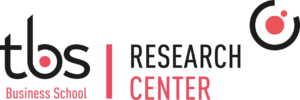1. Presentation of the PhD project
Over the past 30 years, the number of incubators has increased significantly worldwide (Bruneel et al., 2012). This popularization can give the impression that there is a standard incubation model supporting entrepreneurs either to protect them and help them grow or to facilitate their integration into a relevant ecosystem given their “liability of newness” However, there is a variety of incubators with diverse performances. This has led authors to describe incubation as a “black box” (Hackett and Dilts, 2004).
However, several studies have been conducted on the key factors for incubator success (Messeghem et al., 2018; Hackett and Dilts, 2008). They have highlighted the quality of support and the services offered as key factors, while other researches consider that it’s the selection strategy (with “hard” rather than “soft” indicators) that can improve incubator performance.
Both lines of research are open to criticism. First, they promote a model of a high-performance “super incubator” that attracts the best projects because of the perceived quality and reputation of their services. As a result, their performance will be superior because they select only the best projects on the market.
Secondly, they are very focused on the incubation process starting with the identification of the project, its selection and its support. However, the performance of the incubation cannot be understood independently of its environment.
To have quality incubatees, it also means having access to a sufficiently interesting pool of creative projects to be able to select them. How is this project pool set up? What about its quality and variety?
Surprisingly, little academic work has been done on this pre-incubation phase, which we call “entrepreneurial sourcing”. In other words, this phase of support for nascent entrepreneurship aimed at structuring and developing a business project. In the field, there is a real demand to fill this pre-incubation gap with national programs such as PEPITES, events such as START-UP WEEK-ENDs and programs to raise awareness or introduce students to entrepreneurship.
Our hypothesis is that the incubators’ interface with this pre-incubation ecosystem is a key element of their performance. Although projects may come from different locations, incubators are located in a region or city. In fact, there is an essential territorial dimension to understanding the performance of incubators (Audretsch and Belitski, 2017). At different stages of the development of their project, potential entrepreneurs locate themselves in different places depending on the perceived attractiveness of these territories and the potential to promote the emulation and progress of their project. Indeed, an ecosystem approach to pre-incubation is relevant to better understand the different actors and their coopetition strategies at this key stage (Theodoraki, 2017).
2. Research field and partners
Occitania Regional Ecosystem (Occitania-Ad’OCC Region, NUBBO Regional Incubator). Comparative studies between Montpellier and Toulouse will be considered to study the specificities of two ecosystems. Other research areas may also be explored (PEPITE, TBSeeds, etc.).
3. Required skills
Good written and spoken English and French (B2 minimum).
Interest in entrepreneurship and entrepreneurial support.
Good knowledge of qualitative and/or quantitative techniques or able to be trained.
4. Funding and duration
The salary will correspond to the French standards for a PhD. This is a full-time employment of fixed term from September 2019, for 3 years.
5. Supervision
PhD supervisor (HDR): E. Michael Laviolette is Professor of Entrepreneurship and Strategy at Toulouse Business School.
PhD co-supervisor: Christina Theodoraki is Assistant Professor in Entrepreneurship and Strategy at Toulouse Business School.
7. Contact
– For more information, you can contact us by phone: 05.61.29.47.45 or by email:
o E. Michael Laviolette, em.laviolette@tbs-education.fr
o Christina Theodoraki, c.theodoraki@tbs-education.fr
8. To apply
Send your file in English by email before May 28, 2019 (em.laviolette@tbs-education.fr; c.theodoraki@tbs-education.fr) including:
– A detailed curriculum vitae
– A letter of motivation
– Copies of diplomas and transcripts since the first year of higher education
– Thesis proposal (3-6 pages):
o How does the candidate plan to develop the research topic?
o What methods to be used to process it?
o What are the expected contributions?

